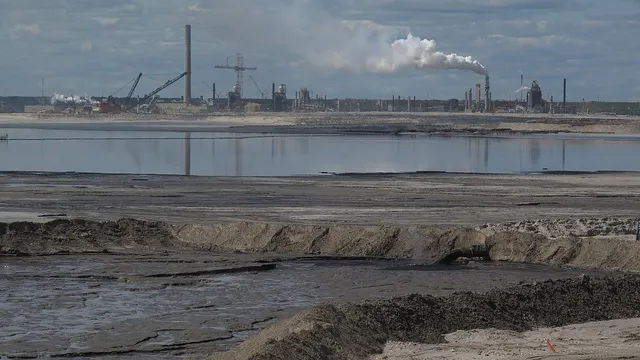CALGARY — Chris Severson-Baker, Executive Director at the Pembina Institute, made the following statement in response to the Government of Alberta’s statements today on the proposed federal Oil and Gas Emissions Cap regulation:
“Oil and gas emissions have grown 11 per cent since 2005, more than any other economic sector in Canada. Looking at just the oilsands specifically, emissions have grown 142 per cent since 2005 – as oilsands production has continued to climb and companies have experienced back-to-back years of record-breaking profits in 2022 and 2023, with very little evidence of sufficient capital being dedicated to projects that would reduce emissions. This is despite a suite of incentives on the table, including investment tax credits and grants for companies that go ahead with carbon capture and storage projects.
“Today’s statements from the Government of Alberta underscored that there is no comprehensive provincial plan to address the sector’s emissions, despite the fact that the province and the oilsands industry have both pledged to reach net-zero by 2050. The federal Oil and Gas Emissions Cap is therefore a regulatory backstop to the important work that the government, industry and others agree needs to be done, to ensure Canada’s oil and gas sector reduces emissions and remains competitive in a world based on low-carbon energy resources.
“Today, the Government of Alberta cited emissions reductions that have already been achieved in the electricity sector and from oil and gas methane, as evidence that federal regulation is not needed. Both of these have in fact been achieved as a result of regulations – which are a proven, effective way for government to provide certainty to companies about what emissions reductions are required, and on what timeline. It has worked, for example, in the electricity sector – where emissions have declined by 59 per cent since 2005, largely as a result of the phase-out of coal-fired power, which was precipitated by regulations that gave companies strong, early signals about the need to invest in cleaner sources of electricity generation.
“Although the Government of Alberta and oil and gas industry groups have released third-party studies modelling the hypothetical impacts of the emissions cap on the province’s economy, Pembina Institute analysis has found that these studies tend to hinge on the assumption that the industry chooses to take very little meaningful action to reduce emissions, and therefore has no choice but to limit production. This is misleading for Canadians. The oil and gas sector has options available to it to futureproof its operations and continue to make an important contribution to Canada’s future economy – but to do so, it must invest in emissions reduction projects without delay.”
[30]
Key facts
- In June 2024, the Government of Canada finalized and passed into law its Carbon Capture Utilization and Storage Investment Tax Credit (CCUS ITC), which covers 50% of companies’ eligible expenses for capture equipment and 37.5% of eligible expenses for transportation and storage equipment — so long as those expenses are incurred before the end of 2030.
- With the legislation of the federal CCUS ITC we expect that the Government of Alberta will now finalize the Alberta Carbon Capture Incentive Program (ACCIP) as it is intended to align with the federal tax credit and provide an additional grant of 12% for new eligible CCUS capital costs to approved projects.
Contact
Alex Burton
Communications Manager, Pembina Institute
825-994-2558
Background
Report: Waiting to Launch: 2024 mid-year update
Report: All Together Now: A provincial scorecard on shared responsibility to reduce greenhouse gas emissions in Canada
Op-Ed: Emissions cap needed to spur reductions from highly profitable energy industry
Report: Modelling future impacts of the oil and gas emissions cap
Media release: Pembina responds to oil and gas industry report on hypothetical impacts of proposed emissions cap




